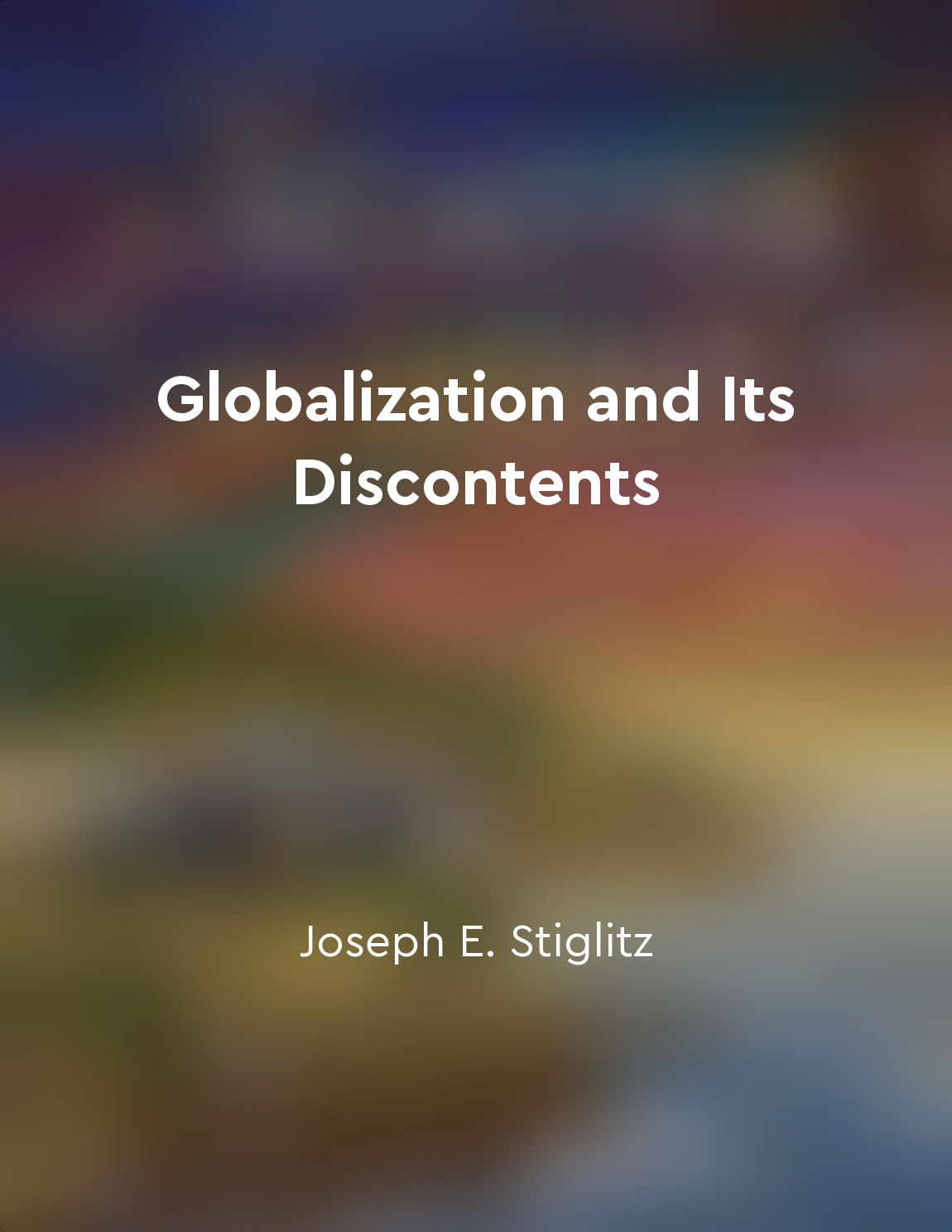Financial motives drive labor decisions from "summary" of Labor in the Age of Finance by Sanford M. Jacoby
Labor decisions are often driven by financial considerations, reflecting the broader influence of finance on employment relationships in the modern economy. Workers must weigh the potential financial gains against the associated costs and risks when making decisions about their labor participation. This calculus is shaped by various factors, including wages, benefits, job security, and opportunities for advancement. Employers, on the other hand, are motivated by financial considerations in their labor decisions as well. They seek to maximize profits, minimize costs, and optimize efficiency in order to remain competitive in the market. This often leads them to prioritize financial outcomes over other considerations, such as worker well-being or job satisfaction. As a result, labor decisions are often driven by the ...Similar Posts
Capitalism is not the only economic system
It is commonly assumed that capitalism is the only economic system that works. However, this is not entirely true. There are ot...
Globalization has impacted work dynamics
Globalization has reshaped the way we work and interact with one another. The interconnectedness of the global economy has led ...
The role of tripartite bodies in addressing labour issues is analyzed
The collective bargaining process in industrial relations involves negotiations between employers and employees, facilitated by...
Myth of economic equality
The idea that economic equality can – and should – be achieved is a seductive notion that has captured the imagination of many ...

The Reconstruction era failed to address racial injustice
The period known as Reconstruction, following the Civil War, was a time of great hope and potential for change in the United St...

Globalization should be a force for positive change, not exploitation
Globalization has the potential to bring about positive changes in the world, fostering economic growth, cultural exchange, and...
Recognize the power of incentives
Incentives drive behavior – this is a fundamental principle of human psychology. We respond to rewards and punishments, seeking...
The Role of Supply and Demand in the Economy
Supply and demand play a crucial role in the economy. They are like two blades of a pair of scissors - they work together to de...

Transparency and open communication build trust within organizations
In organizations, when there is transparency and open communication, trust naturally emerges. This is because when information ...
Corporate greed undermines social welfare and stability
The insatiable pursuit of profit by corporate entities has far-reaching consequences that extend beyond the boardroom and into ...
